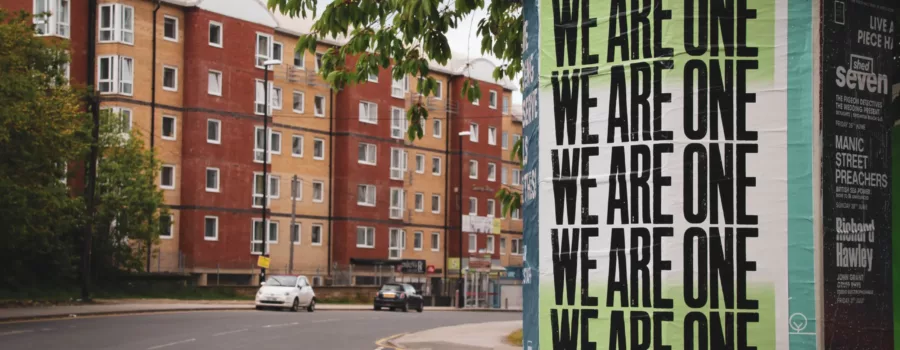Humanity consistently has to face the problem of unity and diversity. We’re not very good at understanding it. That’s why we continue to struggle in our society with rampant racism, along with sexism, homophobia, classism, nationalism, and more. We habitually choose our smaller groups, because we don’t know how to belong to a larger group. That demands too much letting go.
The apostle Paul writes: “The body is one, although it has many parts; and all the parts of the body, though many, are still one body.”(1) This isn’t easy for Westerners to understand, because we are deeply trained in cultural individualism—so much so that we don’t even recognize our lack. When we try to be holy without one another, it doesn’t work—because only the Whole is Holy. Individually, we are too small, too fragile, too broken.
Paul continues by emphasizing unity: “For in One Spirit, we were all baptized [i.e., initiated] into One Body, whether Jews or Greeks, slaves or free persons. We were all given of One Spirit to drink.” In this verse, Paul tears down notions of nationalism, classes, and castes.
Then he honors diversity: “The Body is not a single part, but many.” Each of us is a different and unique person. And yet at the same time, we are not so different and unique. The mystics go to deeper levels to realize that we are more one than we are many. When we can move from “I” to “we,” our conversion begins. Most of us start by thinking “It’s all about me!” Only generous, unconditional love can free us from this self-isolation—but for many this only comes later.
We often ask our isolated selves, “Am I perfect enough? Good enough?” Yes, you are perfect and good enough! Yet as individuals, we are too fragile, too insecure, too small, to bear the weight of glory. And also too little and weak to bear the burden of sin.
We are corporately quite stupid and sinful. I wrote a small book trying to show that Paul actually teaches a most subversive thing: Evil is corporately agreed upon as good before individuals ever dare to do it.(2) We all cooperate in absurd systems. When we humbly and honestly recognize this, we learn much more readily how to join hands with one another. We’re trained to compare and compete; that’s the nature of capitalism. What Paul writes undercuts that by saying, first of all, that we are one; and secondly, that each of us is a unique individual. Holding our oneness and individuality together reveals a mystery: “You are all one Body, and individually, you are parts of it.”(3)
Adapted from Richard Rohr, “Unity Is Created Out of Diversity,” homily, January 27, 2019.
(Photo Credit: Gary Butterfield)
—————————————-
(1) 1 Corinthians 12:12-14
(2) Richard Rohr, What Do We Do with Evil? The World, the Flesh, and the Devil (Albuquerque, NM: CAC Publishing, 2019).
(3) 1 Corinthians 12:27







Leave a Reply
Your email is safe with us.
You must be logged in to post a comment.